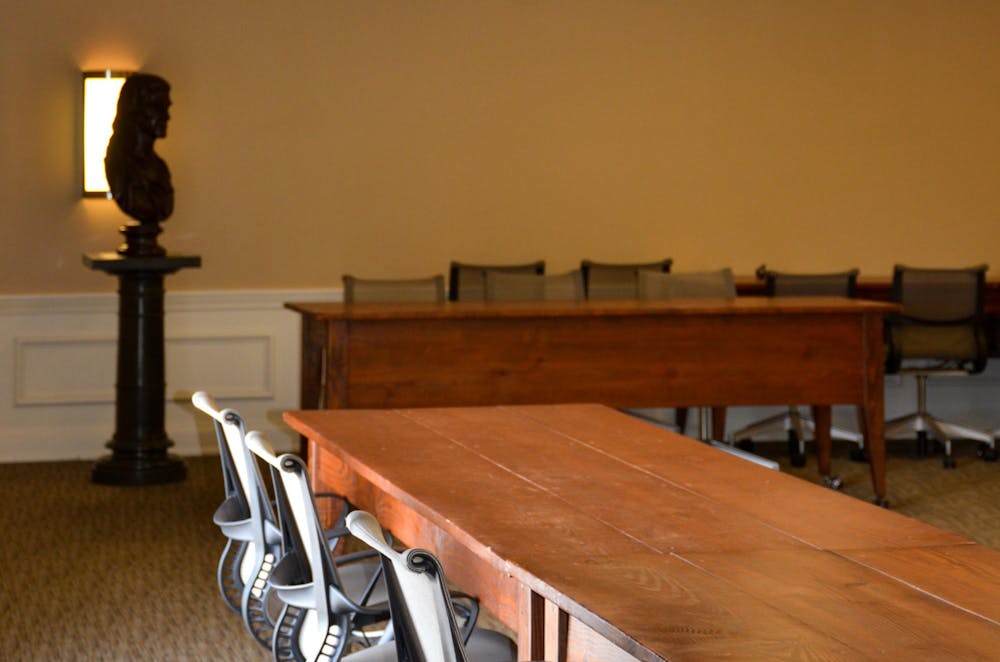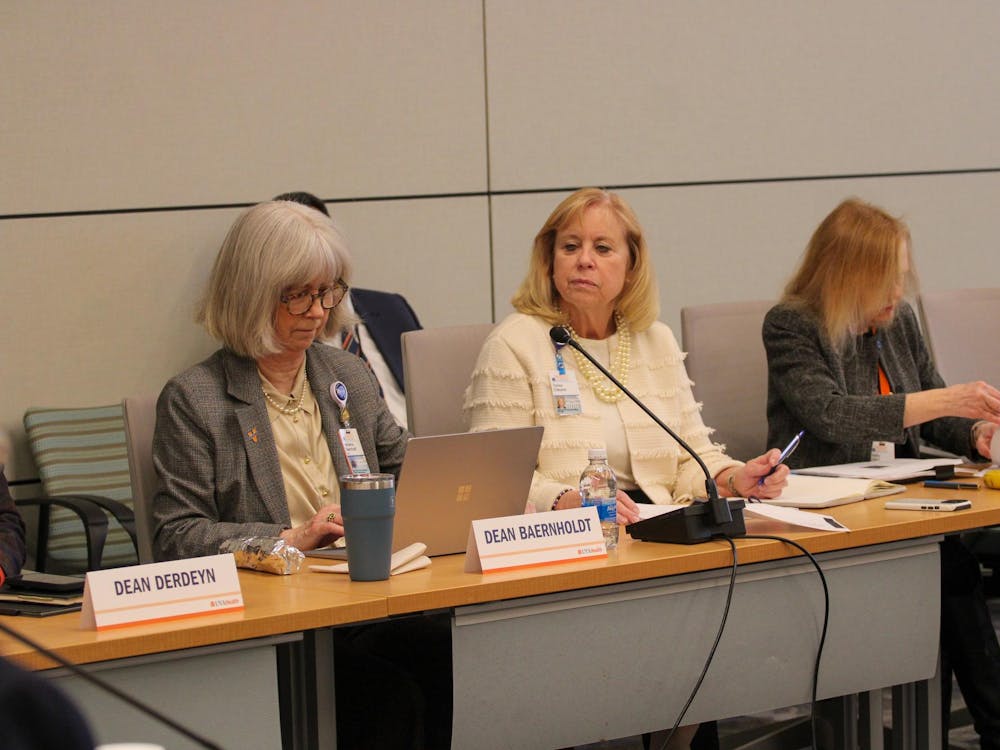The Honor Committee has recently had difficulty in encouraging student feedback across Grounds and at their weekly meetings. Most Sundays at 7 p.m., the Committee holds a meeting, open to the public. But recently, these meetings have become shorter with much of the Committee’s work occurring outside of public view.
The Honor Committee’s public meetings have been substantially shorter this semester. This semester, the Committee’s meetings have had an average length of 35 minutes compared to 50 minutes in the 2024-25 term and 47 minutes in the 2023-24 term.
The Committee also offers a public comment period during its weekly meetings, but the meetings are sparsely attended by the wider University community.
Thomas Ackleson, Honor Committee Chair and fourth-year Engineering student, said that the Committee is aware of the lack of attendance from students at its Sunday meetings.
“The public Committee meetings … are not particularly attended,” Ackleson said. “It would be naive to think this [is] because people don’t have opinions on the Honor system.”
Under Ackleson’s tenure as chair, the Honor Committee is searching for new ways to engage the University community. Some initiatives include Honor staples such as Honor Week, while others are more novel, like their Walk with Honor, Lead to Serve campaign, a five-week program for first-year and second-year undergraduate students meant to equip them with the necessary skills to be ethical leaders in the U.Va. community, according to Student Affairs’ website.
Laura Howard, former Honor chair and Class of 2025 alumna, said that meetings during her term focused on improving the Honor system by changing the Committee’s bylaws and expanding its outreach efforts, especially through Honor Week last spring.
She said she also wanted to provide Committee members the opportunity to discuss issues important to them and their schools, but noted that the length of meetings also varied significantly, depending on the agenda.
“That was definitely something I noticed in my term as well, we had quite the variation of [meeting] times,” Howard said. “When we were talking about something that was a significant bylaw change … our meetings tended to go pretty long because representatives were really passionate about advocating for the interests of students and reporters.”
Another factor that could explain why the University community generally forgoes Honor’s Sunday meetings and why the Committee has seen shorter average meetings is that the Honor system is ultimately administered by the seven officers of the Executive Committee and changes to its bylaws are managed internally. These members set the meeting agenda, run the meetings in real time and effectively decide when meetings should end.
However, this current system is not a permanent fixture of the Committee. If the student body can secure enough signatures outlined by the student-run University Board of Elections, the Honor Committee’s constitution can be amended through a referendum, which is what delivered the end of single-sanction.
For a period of 180 years, the University’s Honor code only had one possible sanction for students found to have “cheated, lied or stolen” which was expulsion. The change to a multi-sanction system that was finalized in 2023 and allows other punishments to be exercised has required the Committee to make continuous tweaks to its bylaws, which can also explain why there is not as much excitement or student participation in recent Committee meetings.
Seamus Oliver, Policies and Procedures subcommittee chair and fourth-year College student, was on the Honor Committee when the transition to a multi-sanction system began. Oliver said that the Committee had no examples to look at when drafting multi-sanction bylaws.
“When I’m drafting policy now, I can do that with the benefit of having seen, at this point, better than 100 multi-sanction cases,” Oliver said. “When we were drafting that first set [of bylaws], there was not a multi-sanction case yet, period.”
Oliver stressed that all of the changes the Honor Committee has made to its bylaws since 2023 were made with clear intentions and purpose. He noted that the P&P subcommittee functions like a “brain trust,” where members go through Honor’s process piece by piece to eliminate inefficiencies.
“I am not in favor of making changes just for the sake of making changes,” Oliver said. “Everything I’ve put my name on, I think has been valuable and worth doing.”
According to Howard, debates during her term centered around changes to the appeals process, case processing timelines and noncompliance proceedings where students fail to meet deadlines or comply with the Committee’s investigative requirements. She also mentioned that meetings used to plan Honor Week also saw significant debate, with representatives engaging in lengthy conversations, while other topics involved less discussion.
This semester, the Honor Committee may see less changes to its bylaws, as the tweaks of recent semesters take effect. Oliver said that this could explain why meetings have been shorter and less discussion-based this semester.
“As we’ve gotten to what I believe to be a more stable system [post multi-sanction]… you’re going to see less proposals for broad sweeping overhauls, which tend to be the most controversial [and] tend to lead to the most interesting arguments,” Oliver said.
Howard said that students wishing to attend Committee meetings should expect this variation in time and agenda. She continued to say that the Committee and individual representatives have had the best interests of students in mind, regardless of the exact length of meetings.
“Sometimes there was just less debate or less conversation to be had and I just let our representatives go early, because I think for every meeting that you hold people late, you should let them leave early,” Howard said.
Nonetheless, Howard encouraged students to attend Honor meetings and give public comments.
“I think that the Honor system at U.Va. is very special,” Howard said. “I think the more students that you have involved, the stronger the system is.”







